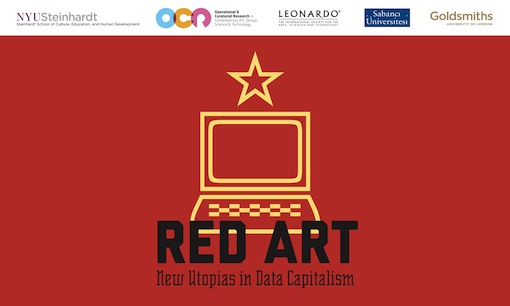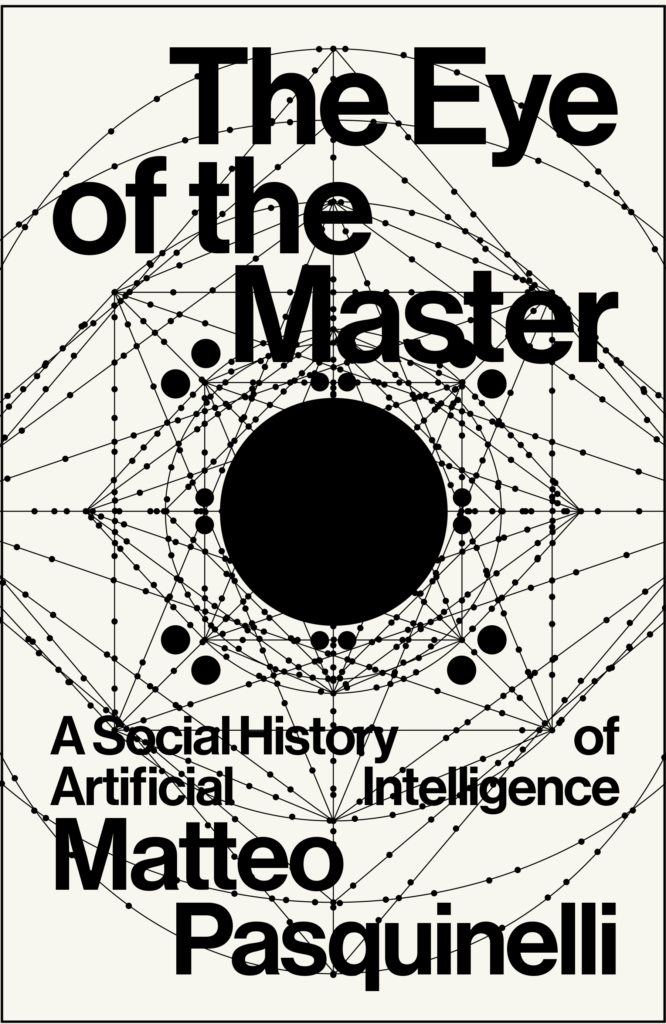
An old piece on the art and strategy of over-identification (Laibach, NSK and the young Zizek) now out for: “Red Art: New Utopias in Data Capitalism”, Leonardo Electronic Almanac, Volume 20 Issue 1, 2014. Still the part on Christian Marazzi, Peter Drucker and the the over-identification of capital with socialist demands resonates well… Download → PDF
Excerpts:
Today a weird process of over-identification is occurring between the archetypes of capitalism and communism at different scales, expanding the feeling of political impasse but at the same time suggesting new spaces of conflict. First, for the irony of fate, a communist state formally ruled by a communist party — China — has become the leading capitalist superpower. […] Second, exactly 20 years after the fall of the Berlin Wall, a global credit crunch have forced western governments to nationalize de facto many private banks openly infringing one of the basic commandments of neoliberal monotheism. […] Third, the new libertarian business models that are born out of digital networks celebrate and locate the common at the center of their mode of production. The new “wealth of networks” is to be based on the “creative commons” and “peer production” of online multitudes, Yoachai Benkler is suggesting to ICT giants like IBM, whereas Wired editor Kevin Kelly confirms that a “new socialism” and a “global collectivist society” is materializing thanks to the internet. These three examples, however, refers just to the surface of economic chronicles: the ‘communism of capital’ has its roots in a more general process of financialization of the whole life that has to be unpacked properly.
*
As Christian Marazzi reminds, it was first Peter Drucker to identify the rise of a peculiar ‘socialism of capital’ in the very financial heart of United States. In his book The Unseen Revolution Drucker described the process of financialization of pension funds that started in the state of New York in the ‘70s. The ‘unseen revolution’ was referring to the accumulation of 35% of United States corporate stocks by workers’ pension funds. Drucker predicted that this ownership interest would increase to 70% by 1985, allowing employees, trough their pension funds, to become hypothetically ”the true owners of the country’s means of production”. For the first time in history, workers’ pensions became a crucial variable of stock markets. It was a revolutionary event also because wage and capital established so a very promiscuous relation, blurring then the essential antagonism between workers and capitalists. The troubles of the current credit system are rooted in that process of ‘socialization of capital’ that started to fuel volatile and unstable financial games.
*
More recently, this financial regime happened to be in need of a strong intervention and protection by the state, reinforcing even more the intuition of a ‘communism of capital’. In fact, in order to resolve the financial crisis of 2007, the gigantic debt of the private sector has been moved to the public sector. In October 2008 the British government announced a rescue package of £500 billion to stabilize banks affected by the credit crunch. In the same year Northern Rock was nationalized, first of a long series of bailouts and partial nationalization in the western world, most notably the acquisition of Merrill Lynch by Bank of America. In this awkward ‘communism of capital’ the state fulfills the needs of the ‘financial soviets’ of banks, insurance companies and investments funds by using to the money of all the taxpayers — and de facto imposing the dictatorship of financial market over society, Marazzi argues. At the end of its parable the supposed ‘socialization of means of production’ via the stock exchange has been reversed into a less democratic ‘socialization of private debt’ via the state.
*
In technical terms, the expression ‘communism of capital’ refers to a process of colonization of any aspect of human life that can be transformed into a credit line. The financialization of the bios has been cannibalizing everything: from health insurance to house mortgage, from credit cards to student debt. Also the precarization of the labour market into the figures of temp worker and freelancer and the virtualization of companies into networks of outsourcing point to a deep financialization of economy.
*
According to Marazzi, this wild financialization of the whole human life is specular to the crisis of the traditional forms of political representation, i.e. specular to the resurfacing of the political subject of the multitude: “Financial capital, as social capital listed on the stock exchange, appears as a ‘collective representative’ of the multitude of subjects that populate civil society. […] Financialization defines the public sphere of capital. […] It is specular to the missing attempt to constitute a separated public sphere autonomous from capital. Under this aspect, the financialization of capital is the sign of the political crisis of the form of representation of the multitude”.
*
Here the political question at stake is how to overturn the hegemony of financialization and how to conceive a new political subject at the very center of the ‘communism of capital’.


